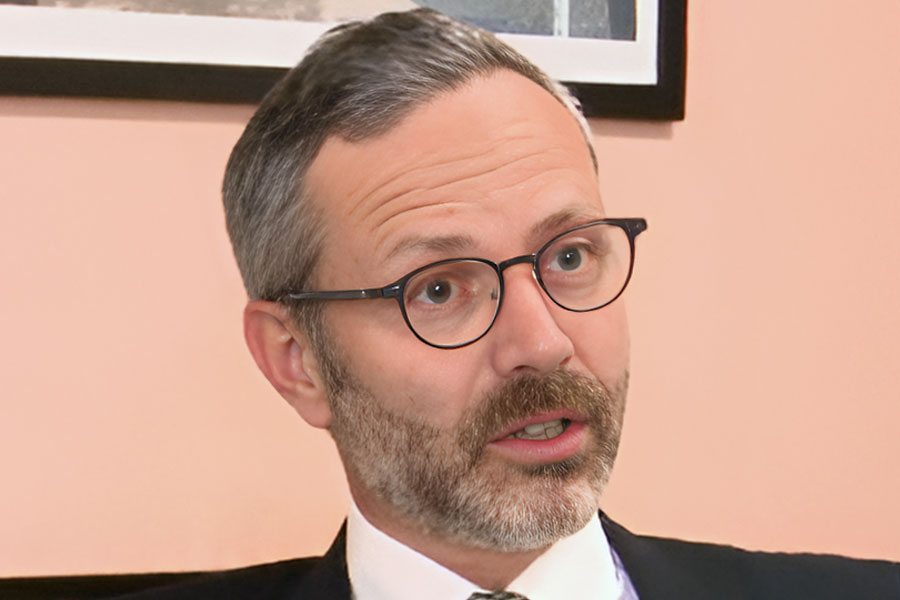
Viewpoints | Jul 29,2023
Jun 13 , 2020
By Christian Tesfaye
It is astounding how, in a matter of just four years, what was a largely stable global order has unravelled and is threatening to swallow us whole. It speaks to the sheer complexity of our current predicament that no one can meaningfully predict the near future. Starved of the assertiveness of multilateral institutions in the wake of the regression of a world police (the United States) and lacking a broad acceptance of the values that we used to uphold, anything can happen now.
The world powers have been caught up in their own social and economic problems and do not give us as much attention as they used to. With anti-globalist conservatism on the rise in many of the developed countries and the left never at peace with itself, it seems that we have our destiny in our hands, even if for a brief time. No doubt, the outside world is carefully observing what goes on inside our borders, but the rise of a multipolar global order and political and economic uncertainty make it that we have a certain increased level of independence.
Is this good or bad?
Independence usually sounds like a great concept. It entails the freedom to act. It also entails a certain level of uncertainty. We give in to authority not because it feels great, but because we have to - because we desire protection.
The last time there was no longer a world superpower that commanded economic and military hegemony, we had the Cold War. As far as we were concerned, those were devastating years. We lost almost two decades to an idea - Marxism-Leninism - that effectively siphoned us off from a part of the world that was technologically taking off.
The pre-Cold War was not great for our sort either. The world’s major powers were on a “civilising mission,” and Africa was for the taking. There were no effective multilateral institutions that recognised the right to sovereign existence and no one questioned that the democratisation of the imperial powers did not extend to their colonies. The United Nations might not have been instrumental in securing the independence of African nations, but it served as a check from blatant attempts at violating the sovereign rights of nations, at least symbolically.
If the current state of affairs continue as they have over the past four years, what we will have is a global order full of disinterested, undemocratic nation-states that will attempt to increase their power at the expense of their competitors.
This is not good for Ethiopia. We would be rats trying to get breadcrumbs amidst a field of brawling elephants, with no one being able to enforce order. The elephants may survive the ordeal, but by the time a new order is established that has found its footing, we might have been stepped on.
In a world of foxes, it is questionable whether or not we should be seeking independence or expect a world order in which there is no police but a multitude of gangs that do not see beyond their immediate national needs.
The world is an unfair place. Despite being the most likely to be severely affected by this polarised world, we are powerless to do anything about it. But we must have no illusions of the developing state of world affairs. It will be uncertain, violent and illiberal. Dark times are ahead. The least we can do will be to take stock of our place in the world and play our cards as if our collective fate depends upon it.
PUBLISHED ON
Jun 13,2020 [ VOL
21 , NO
1050]


Viewpoints | Jul 29,2023

Radar | Feb 27,2021

Radar | Jun 24,2023

Viewpoints | Jun 24,2023

Viewpoints | Nov 11,2023

Viewpoints | Nov 18,2023

Fortune News | Oct 30,2022

Commentaries | Mar 09,2024

Editorial | May 13,2023

Radar | Jun 20,2020

Photo Gallery | 169835 Views | May 06,2019

Photo Gallery | 160081 Views | Apr 26,2019

Photo Gallery | 149669 Views | Oct 06,2021

My Opinion | 136210 Views | Aug 14,2021





Dec 22 , 2024 . By TIZITA SHEWAFERAW
Charged with transforming colossal state-owned enterprises into modern and competitiv...

Aug 18 , 2024 . By AKSAH ITALO
Although predictable Yonas Zerihun's job in the ride-hailing service is not immune to...

Jul 28 , 2024 . By TIZITA SHEWAFERAW
Unhabitual, perhaps too many, Samuel Gebreyohannes, 38, used to occasionally enjoy a couple of beers at breakfast. However, he recently swit...

Jul 13 , 2024 . By AKSAH ITALO
Investors who rely on tractors, trucks, and field vehicles for commuting, transporting commodities, and f...

Oct 4 , 2025
Eyob Tekalegn (PhD) had been in the Governor's chair for only weeks when, on Septembe...

Sep 27 , 2025
Four years into an experiment with “shock therapy” in education, the national moo...

Sep 20 , 2025
Getachew Reda's return to the national stage was always going to stir attention. Once...

Sep 13 , 2025
At its launch in Nairobi two years ago, the Africa Climate Summit was billed as the f...

Oct 5 , 2025 . By NAHOM AYELE
In Meqelle, a name long associated with industrial grit and regional pride is undergo...

Oct 5 , 2025 . By BEZAWIT HULUAGER
The federal government is set to roll out a new "motor vehicle circulation tax" in th...

Oct 5 , 2025 . By NAHOM AYELE
The Bank of Abyssinia is wrestling with the loss of a prime plot of land once leased...

Oct 5 , 2025 . By BEZAWIT HULUAGER
The Customs Commission has introduced new tariffs on a wide range of imported goods i...